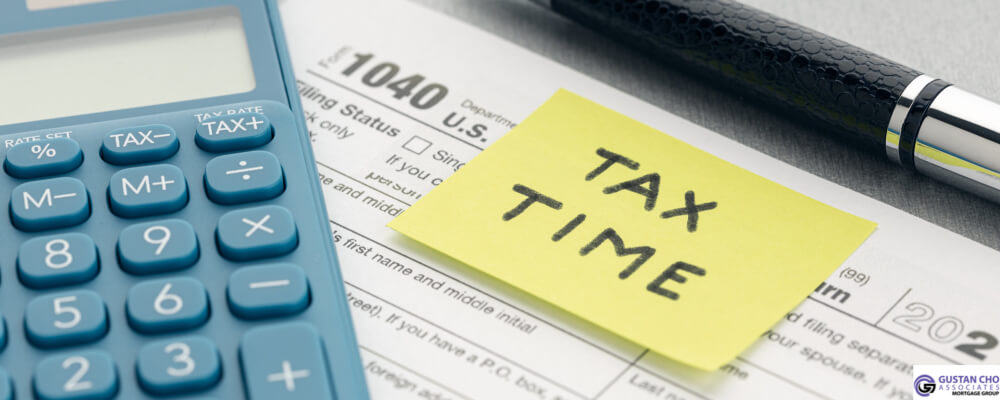Mortgage With Judgment and Tax Liens Guidelines
In this blog, we will cover and discuss qualifying for a mortgage with judgment and tax liens. Government and conventional loans have different types of mortgage guidelines when it comes to judgments and tax liens. Borrowers who have an open judgment in the credit file could become an issue if they are planning to apply for mortgage financing. Judgments fall under the public record section of your credit file. Borrowers can qualify for Mortgage With Judgment And Tax Liens. This holds true as long as they have a written payment agreement and has been paying on it for at least three months. Public records include judgments, bankruptcies, foreclosures, deeds-in-lieu of foreclosure, and state and federal tax liens. Negative public records frown upon lenders. Almost all lenders would want a detailed letter of explanation.
Will a Judgment Prevent Me From Getting a Mortgage?
Most lenders view borrowers with civil judgments and other public records as higher-risk borrowers which might affect loan approvals. Unfortunately, most lenders will likely want borrowers to address the judgment. Possibly get it paid and closed completely as a condition to funding the loan. In this article, we will discuss and cover Mortgage With Judgment And Tax Liens Guidelines.
How Do Lenders Look on Judgments and Tax Liens on Conventional Versus FHA Loans
There are several types of traditional loan programs:
- FHA Loans
- VA Loans
- USDA Loans
- Conventional Loans
However, the two most popular loan programs today are the following:
- The first type of mortgage loan program is a conventional home loan.
- Conventional loans are also known as conforming loans
- This is because they need to conform to Fannie Mae and/or Freddie Mac Agency Guidelines
- Conforming conventional loans have stricter guidelines than FHA- insured loans
With conventional loans, borrowers with tax liens and/or outstanding tax debts can qualify for conventional loans with a written payment agreement and one month of payment to the IRS. This holds true for VA loans.
FHA Mortgage With Judgment and Tax Liens
The second type of residential home loan is the FHA loan.
- HUD does not grant the FHA loan
- HUD merely insures the FHA loan
HUD guidelines are a little more lenient:
- the judgment can remain open after the loan is completed
- but only if you have an agreement with the creditor to make regular and timely payments
- You need to document you’ve made your payments as agreed for at least three months after the signed written payment agreement
Borrowers with an outstanding tax lien can qualify for an FHA Loan with a written payment agreement and three months of payments to the IRS. Fannie Mae and Freddie Mac allow borrowers to qualify for a conventional loan with delinquent taxes but not with a federal tax lien. The federal tax lien needs to be paid in full and release. However, you can qualify for a conventional loan with money owing to the IRS as long as you have a written payment agreement and have made one payment.
Qualifying For Mortgage With Judgment And Tax Liens With Written Payment Agreements
Judgments without a payment agreement must be paid and closed before the loan is complete under FHA guidelines. HUD, the parent of FHA allows borrowers with judgments and tax liens to qualify for FHA loans. This holds true as long as the written payment agreement is in force. Borrowers must have made at least three payments. Need to provide bank statements and/or canceled checks. Borrowers cannot pre-pay the three months of payments upfront. Three months have to be seasoned. Though HUD guidelines allow for judgments to remain with an installment plan, banks who fund FHA loans may place stricter lending requirements also known as overlays. Gustan Cho Associates has no lender overlays on government and conventional loans.
How Can Borrowers Qualify For An FHA Mortgage With Judgment and Tax Liens
A civil judgment does not mean that a borrower does not qualify for a mortgage. Borrowers can qualify for Mortgage With Judgment And Tax Liens. The judgment and tax liens will be addressed. Either need to be paid off or you would need a payment plan in place. Consumers can also try to get the judgment vacated if they believe they were not properly served (I will cover vacating a civil judgment on later blogs).
How To Qualify For A Mortgage With Judgment And Tax Liens
There are lenders who will finance a home loan for a borrower with a civil judgment and they can qualify for Mortgage With Judgment And Tax Liens. Lenders would like to see a payment plan agreement with the judgment creditor in place and would like to see that the borrower has made timely payments for a minimum of 3 to 6 months. If those conditions are met, the answer is yes, you can qualify for a home loan. As mentioned earlier, all lenders require a written payment agreement on tax liens. Fannie Mae, Freddie Mac, VA allows one month of payments with a written payment agreement on tax liens. FHA requires three months of payments with a payment agreement on Tax liens. For judgments, all loan programs require a written payment agreement and three months of payments.
Written Payment Agreement With Judgment Creditor
Another popular question I always run into from borrowers is if they enter into a payment agreement with a judgment creditor and close on their home but after the closing, they no longer pay the judgment creditor, will the borrower be in default of the loan. The answer is no. It is up to you whether you want to continue with your payment plan, renegotiate payment terms, try to settle on a certain amount, or default on the judgment until the statute of limitations expires. Or try to have the judgment vacated. After closing the loan, it is all up to the borrower on whether they want to be current with the judgment creditor. The lender will have no control over what you do with your civil judgment.
Mortgage With Judgment And Tax Liens: Judgment Not On Credit Report
What if people disputed their judgment with all three credit bureaus and had the judgment deleted by the credit reporting agencies. That would be great if the civil judgment or civil judgments were deleted from the credit report. No doubt credit scores will improve. However, on the formal mortgage application, there will be a question that asks you whether the borrower and/or your co-borrower had a judgment Need to answer that question truthfully. This holds true unless they want to take a chance and get caught and busted for mortgage fraud.
Third-Party National Public Records Search
Although it is completely deleted by all three credit bureaus, most underwriting departments of lending institutions have ways of tracking active judgments through a third-party public records search. I strongly recommend that people state the truth on every question asked on your formal mortgage application. It is not a matter of getting a loan denied. It is a matter of committing a serious felony known as mortgage fraud. Mortgage fraud is an extremely serious offense. Those committing mortgage fraud can bank that the FBI will be questioning them.
Advice And Tips On Qualifying For Mortgage With Judgment And Tax Liens
All in all, borrowers with judgments can qualify for a loan if they have a payment agreement set up with the judgment creditor. If borrowers know they have a judgment in their credit file. The only way of getting rid of judgment is by filing bankruptcy, settling with the judgment creditor, or making a long-term payment plan.
Dangers of Credit Repair During the Mortgage Process
Deleting judgment from a credit report will not solve the actual judgment. Deleting civil judgment from credit reports might improve scores significantly All lenders will do a third-party national public record search and any public records such as judgments, tax liens, bankruptcy, a foreclosure will show up. But will not resolve the civil judgment. Most civil judgments have a statute of limitation for a period of ten years. The judgment creditor has a right to renew the judgment for another 10 years but most judgment creditors do not renew the judgment. Judgments normally will not go away. You either have to file bankruptcy and/or settle it one way or another. A written payment agreement is another good solution for rectifying a judgment.
Lending Guidelines on Mortgage With Judgment And Tax Liens
I often get asked at least half a dozen times a week by borrowers Can I Qualify for a mortgage with judgments, tax liens, collections and outstanding charge-off accounts. Government and Conventional Loans do not require borrowers to pay outstanding unpaid collection accounts and charge off accounts. Can qualify for a mortgage with judgments and tax liens. But under certain conditions which we will cover in the following paragraphs. We will basically cover two types of outstanding derogatory accounts in qualifying for home loans in this article:. How To Qualify For Mortgage With Outstanding Collection Accounts And Charge Off Accounts. How To Qualify For Mortgage With Judgment And Tax Liens.
How To Qualify For Mortgage With Outstanding Collections And Charge Offs?
As mentioned earlier, government and conventional loans do not require outstanding unpaid collection accounts to be paid off. Agency Guidelines also do not require that charge-off accounts be paid off or settled either. There are certain FHA Guidelines on Collections and Charge-Offs. FHA, VA, USDA, Fannie Mae, and Freddie Mac do not require borrowers to pay off outstanding collection accounts with balances.
Government And Conventional Mortgage Guidelines On Derogatory Tradelines
HUD, VA, and Conventional Loans classify collections accounts into two categories:
- medical collections
- non-medical collections
How Do Mortgage Underwriters View Medical Collections
Lenders exempt medical collection accounts with outstanding balances from debt to income ratio calculations. Lenders exempt non-medical collection accounts with under $2,000 in total outstanding unpaid balances from debt to income ratio calculations. Lenders require that any outstanding unpaid non-medical collection accounts that the sum is greater than $2,000 for the lender to take 5% of the outstanding unpaid collection account. This is used as part of the borrower’s monthly debt. This holds true even though the borrower does not have to pay the creditor.
Hypothetical Payments Used By Mortgage Underwriters
If the borrower decides to enter into a written payment agreement with creditors, that written monthly payment agreement can be used in lieu of the 5% of the outstanding unpaid collection balance amount. There is no seasoning required. The date of the executed agreement is the date when this is in force. To qualify for a mortgage with judgments and tax liens, you need a written payment agreement plus three months of canceled checks. This three months seasoning requirement does not apply to written agreements on collection accounts.
What Are Judgments And Tax Liens?
Collection accounts can eventually become judgments. Lenders take 5% of the outstanding unpaid collection account balance and use that as a monthly debt on non-medical collection accounts for borrowers who have over $2,000 in outstanding unpaid collection accounts. This is because creditors can come after consumers who have collection accounts. Most creditors will not bother consumers with the collection. accounts under $2,000. But those who owe more than $2,000, creditors may go after those consumers. This holds true especially if they know that they have assets and good-paying jobs.
Mortgage With Judgments Case Scenarios
In this paragraph, we will cover a typical case scenario on how a consumer gets a judgment issued by the courts. Consumer falls behind on their minimum debt obligations. It can be credit cards, auto loans, or other installment debt. Creditors will call consumers and try to collect the debt. The creditor eventually gives up and the debt gets sold and/or assigned to a third-party collection agency. The collection agency will try to collect on a debt by phone and/or mail. The collection agency will do due diligence.
What Actions Do The Judgment Credit Takes To Enforce a Judgment
If they think that the consumer is collectible, they will sue the consumer and take them to court. In order to get the consumer to show up to court, the collection agency and/or creditor files a lawsuit. The Deputy sheriff needs to serve consumers. Once the deputy sheriff serves the consumer, the lawsuit process is in motion. Consumers can show up to court and defend themselves and prove that the debt is not theirs or it is wrong. If the consumer has no defense, the judge will issue a judgment. If the consumer does not show up, the judge will issue a judgment against the consumer and in favor of the creditor. Once a creditor has a judgment against the debtor, the creditor can go and enforce the judgment.
What Are The Statute of Limitations on Judgments
Judgments normally have a statute of limitations of 10 years. Statute of limitations on judgments depends on where the judgment was issued. Judgments can also be renewed once the statute of limitations is up. Tax liens are similar to judgments and need to be paid.
How To Qualify For Mortgage With Judgment And Tax Liens
Home buyers can qualify for mortgage with judgments and tax liens. Here is how you can qualify for a mortgage with judgments and tax liens:
- Borrowers have two options on how to qualify for a mortgage with judgments and tax liens
- Can either have a written payment agreement with the judgment creditor and/or IRS and make three payments
- Cannot pre-pay the three payments upfront
- Need to pay each month by month for three consecutive months
- Provide the lender with proof of three consecutive timely payments via canceled checks and/or bank statements
- Or can pay the judgment and/or IRS tax lien in full and show proof of payment
Can pay either prior to closing or at closing.
Will Getting Judgments And Tax Liens Deleted Off Credit Report Via Credit Repair Work?
Credit Repair does work. I have seen many consumers delete the following items off their credit reports through credit repair:
- Collection Accounts
- Charge Off Accounts
- Late Payments
- Repossessions
- Bankruptcies
- Foreclosures
- Short Sales
- Deed in Lieu of Foreclosures
- Judgments
- Tax Liens
Mortgage With Judgments Versus Collections
Nobody, including lenders, can find out if consumers got collections, charge-offs, late payments, and repossessions deleted off credit reports through credit repair. However, if consumers deleted public records deleted off credit reports, lenders will find out and their loans will get denied.
Example Of Public Records
Here are examples of public records:
- Bankruptcies
- Foreclosures
- Short Sales
- Deed in Lieu of Foreclosure
- Court-ordered child support payments
- Delinquent government student loans
- Judgments
- Tax Liens
Consumers with the above derogatory items get them removed from credit reports through credit repair, lenders will find out. All lenders will order third-party public records search through Lexis Nexis and/or Data Verify. All delinquent derogatory public record items need to be addressed. If planning on buying a home or needing to refinance a home loan, borrowers can qualify for a mortgage with judgments and tax liens with a written payment agreement. For mortgage borrowers with any questions about qualifying for a mortgage with judgment and tax liens, contact us at Gustan Cho Associates at 800-900-8569 or text us for a faster response. Or email us at gcho@gustancho.com.



